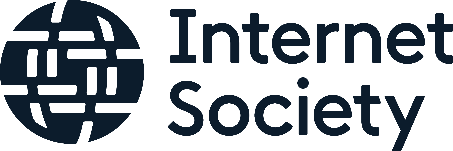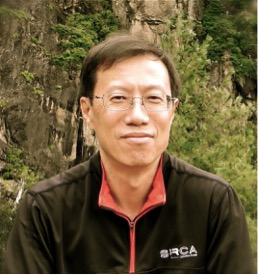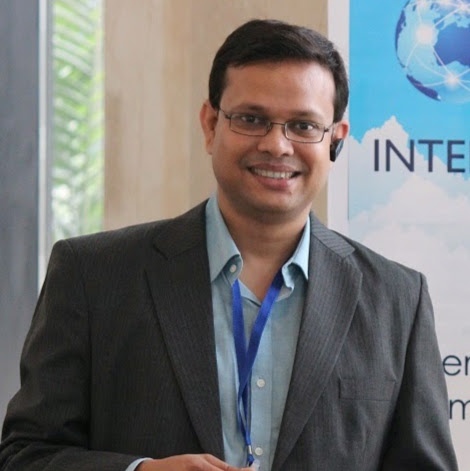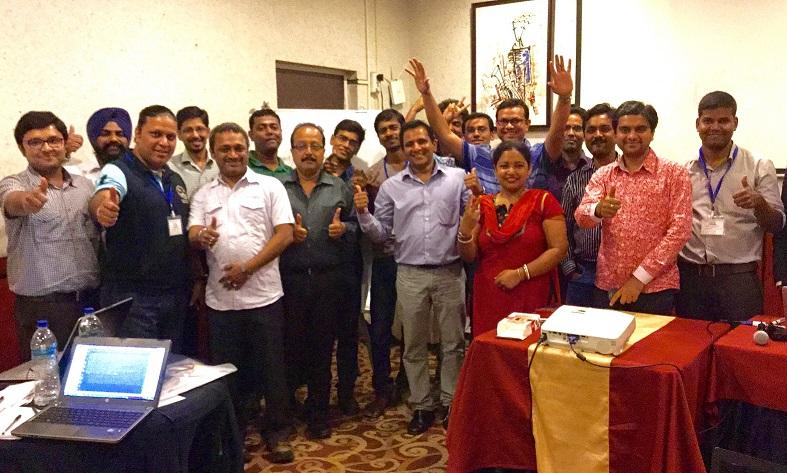 |
 |
 |
MARCH
26-31 Mar, Chicago
29-30 Mar, Singapore
29-30 Mar, Kabul
ISOC Digital Accessibility Workshop
31 Mar, Colombo
APRIL
3-4 Apr, Singapore
3-7 Apr, Bangkok
3-7 Apr, Perth
3-7 Apr, Rarotonga
18-19 Apr, Dhaka
25-27 Apr, Nadi
MAY
2-3 May, Bangkok
3-4 May, Bangkok
3-4 May, Kuala Lumpur
Pakistan Digital Forum
3-4 May, Islamabad
3-5 May, Ghaziabad
8-9 May, Bangkok
8-12 May, Nonthaburi
10-12 May, Phnom Penh
15-16 May, Bangkok
15-18 May, Hyderabad
16-17 May, New Delhi
ISOC Online Privacy Workshop
17-18 May, Port Vila
19-23 May, Bogra
22-24 May, Yogyakarta
23-25 May, Singapore
JUNE
5-7 Jun, Bangkok
8 Jun, Bangkok
12-16 Jun, Geneva
28 Jun - 1 Jul, Shanghai
JULY
16-21 Jul, Prague
22-26 Jul, Bangkok
26-29 Jul, Bangkok
JANOG40
26-28 Jul, Fukushima
AUGUST
15-17 Aug, Honiara
21-22 Aug, New Delhi
23-25 Aug, New Delhi
SEPTEMBER
5 Sep, Singapore
7-8 Sep, Melbourne
7-14 Sep, Taichung
14-15 Sep, Tbilisi
25-28 Sep, Busan
25-29 Sep, Hong Kong
|
 |
 |
 |
 |
|
|
 |

|
MARCH 2017
|
|
|
|
This is a monthly e-newsletter published by the Internet Society's Asia-Pacific Regional Bureau. It has updates on the Bureau's activities and features insights on the transforming Internet landscape in and around the Asia-Pacific region.
If you like our e-newsletter, you can share it by clicking on the social media links above.
|
|
Announcement: Participate in the Asia-Pacific Regional Policy Survey
|
|
|
The survey aims to solicit views on Internet policy-related trends and issues in the Asia-Pacific, and the results will be used to inform dialogue and deliberations around Internet issues in the region. A summary of the findings will be published on the ISOC website.
The survey takes about 10 minutes to complete. Participants who complete the survey will have the option of being entered into a draw for a 10-inch tablet of your choice (Android or Apple).
The survey will run until 5 April 2017, 23:00 Singapore time (UTC +8).
Click
here to participate in the survey.
|
Editorial: One Week in Ho Chi Minh City - Another Busy APRICOT for the ISOC Team
|
|
|
If we had to choose music to accompany all our activities at
APRICOT 2017 it would surely be
Chopin's Minute Waltz (Op 64, No 1). No, we did not manage to fit 138 bars of music into 60 seconds but the tempo was very lively with frequent crescendos and diminuendos and a lengthy trill. Call it efficiency, but we all managed to share and exchange a lot of information working within the new shortened APRICOT 2017/APNIC 43
programme.
Employing good strategic planning, the ISOC Asia-Pacific Regional Bureau's activities preceded our arrival into Saigon (the former name for Ho Chi Minh City). We had sponsored nine ISOC Technical Fellows to attend the workshop week in-line with our mission to support capacity building in developing countries. The workshop week allowed network engineers to not only keep up-to-date with current and emerging trends in network operations (including network management and security), but gave them the opportunity to exchange knowledge with their peers from the region, and take and make use of the learnings back home.
This year the ISOC
sponsored a total of 12 fellows to APRICOT 2017. The fellows were split between the technical workshops and the conference week, depending on their areas of interest.
We are happy to note that 70% of these fellows were females - coming from
Bangladesh, Bhutan, Cambodia, Fiji, Myanmar, Timor-Leste and Vanuatu. Encouraging and facilitating the participation of female fellows at such technical events is one way in which we are trying to help bridge the gender gap in the technology sector.
The ISOC had a sizeable presence overall at APRICOT 2017, with staff from various teams including the Regional Bureau, Internet Technology and Partnership Development. This included Aftab Siddiqui, Amelia Yeo, Andrei Robachevsky, Howie Baggott, Jan Zorz, Kevin Meynell, Rajnesh Singh and Raul Echeberria.
The Team took on a wide variety of roles at APRICOT 2017/APNIC 43 and other co-located events. These included:
- Chairing (Raj) and speaking (Amelia) in the AP *meeting
- Speaking in the APNIC Cooperation SIG on Connecting the Next Billion (Raul)
- Facilitating the BOF on Best Current Operational Practices (Jan and Aftab)
- Moderating the APNIC Panel on Forces Shaping the Network (Raul)
- Speaking in the DNS/DNSSEC session on DNSSEC/DANE/TLS Testing in Go6Lab (Jan)
- Moderating (Raj) and speaking (Raul) at the BOF on Community Wireless Networks
- Speaking in the APNIC Panel on Navigating the IPv4 Transfer Market (Aftab)
- Speaking in the APNIC Global Reports on ISOC Updates (Raj)
- Speaking in the Network Security session on Two years of good MANRS (Andrei)
- Organising/Speaking the ISOC@APRICOT session (Amelia, Raul, Aftab, Raj and Gihan Dias from the ISOC Board of Trustees)
- Speaking at APTLD71 on ISOC updates (Raul)
- Speaking in the IPv6 session on Deployment on NAT64/DNS64 experiments, warnings and one useful tool (Jan)
- Serving as the Election Chair of the 2017 APNIC Executive Council Election (Jan)
Of note are some of Jan's technical presentations that include
DNS/DNSSEC and
NAT64 and IPv6. Jan was so inspired that he had specially tailored his presentations for Viet Nam (including being dressed for the occasion in Asian attire).
In addition, we took the opportunity to engage with stakeholders present at APRICOT 2017 and had a number of bilaterals and side meetings. This included government representatives, network operators, vendors, academia and Internet Hall of Fame inductees (Geoff Huston, Gihan Dias, Kanchana Kanchanasut, Randy Bush, Steve Huter).
In a nod to fostering the next generation of Internet leaders, we had Md. Abdul Awal from our Bangladesh Dhaka Chapter chair the
ISOC@APRICOT meeting. He did a good job, and we look forward to seeing more of our younger members taking the lead in future meetings.
All in all, the ISOC Team had great visibility and impact during APRICOT 2017 and there are a number of outcomes and collaboration opportunities that we will be following up on in the coming weeks and months.
APRICOT 2018 will be held in Kathmandu, Nepal from 19 February to 1 March.
|
|
Guest Article: Winning Back the Trust - Countering Fake News and Extremist Sites
|
|
|
by Peng Hwa Ang

Most Internet users habour the mistaken notion that fake news and extremist sites have nothing to do with them. They do not visit such sites, and of course (ahem), they can spot fake and extremist sites a mile away.
Well, we all have to think again.
In mid-March, several major organisations pulled out ALL their advertisements from Google and YouTube targeted at the United Kingdom because their ads were appearing in extremist sites. The brands were responding to a March 17 report in the Times of London headlined "
Taxpayers are funding extremism" observing how the algorithm of the platforms were displaying their advertisements on the extremist sites. Among the organisations: the UK Government, BBC, The Guardian, Havas, British Royal Mail, Domino's Pizza and Hyundai Kia.
As I write, Facebook too is rolling out initiatives to address the problem.
And the problem is this: advertising is the reason that many of the services we take for granted on the Internet are available for free or at minimal cost. If the advertising space is not trustworthy for advertising - that is, if the space is such that brands do not want to advertise-we could all literally be paying a higher price.
A theory that explains the importance of protecting the advertising space comes from Nobel-prize winning economist George Akerlof. His theory, which was the main reason for his Nobel, is that where there is asymmetry of information in a market, for example where one party knows what she is selling, but the other party does not know as much, the market eventually self-destructs.
The reason is that as buyers begin to lose trust in the information, the more trustworthy sellers begin to drop out of the market. After all, if people do not trust their information, they will look elsewhere to find buyers who will believe their information. As lower quality sellers remain, more buyers begin dropping out, until eventually, only the worst quality sellers are left and no buyers remain. At this point, the market has self-destructed.
It is no surprise therefore that Google and Facebook, which together command more than half of global online advertising by revenue, are taking action to prevent the self-destruction. The thrust of their actions is to deprive these extremist sites of the oxygen of advertising revenue. The same commercial logic can apply to fake news sites.
Their actions mean that both advertisers and advertising platforms are motivated to act. There is one more leg to the triangle: the audience-you and me. If the audience acts decisively to repudiate the advertisements - e.g., by declaring that they will boycott companies that advertise on fake news and extremist sites - the incentive to create such sites will be choked off.
We can play our part by alerting the advertisers and the platforms. It is crowdsourcing and community building in action, calling out the best from us.
No, we will not eliminate all advertising from fake news or extremist sites. We make it a lot harder for them to use the Internet against us.
If we do that, we will be making our little corner of the world just that little bit brighter.
Peng Hwa Ang
is a founding member of the ISOC Singapore Chapter. He is a professor at Nanyang Technological University and was a member of the Working Group on Internet Governance. The views and opinions expressed in this article are those of the author and do not reflect the views of the Internet Society.
|
|
Profile Feature: Anand Raje, Vice President, ISOC India Kolkata Chapter
|
|
|
 Anand
Anand is an information technology (IT) entrepreneur. He co-founded two Internet and business IT solution companies - RABT Technologies in 2011 and BASIS Technologies in 2013. He is also an experienced trainer in network security.
Previously, he designed and implemented e-governance projects for the Land Records and Revenue Departments in India, and was involved in bringing the first L-Root instance in India. Anand is now implementing the
Indian IETF Capacity Building Program that aims to increase awareness of Internet standards and protocols among engineering students. He is also involved in implementing India's first community-driven Internet exchange point -
IIFON-IX-Kolkata.
Anand holds a Master's degree in Computer Science and has multiple certifications in IT, network security and privacy, including DSCI, DCPLA, CSSP and CCNSP. He has also completed the ISOC
Next Generation Leaders Programme. He has participated in and organized numerous international technology forums, workshops and conferences, and has received fellowships from ICANN and ISOC for IETF.
|
Chapter News: ISOC India Kolkata Chapter Organised a Series of Events on Internet Infrastructure and Security
|
|
|
by Anand Raje, Vice President, ISOC India Kolkata Chapter

The
ISOC India Kolkata Chapter has recently implemented India's first community-driven Internet exchange point -
IIFON IX Kolkata. To promote and engage with a group of volunteers, as well as develop technical capacity to peer in the exchange point, we have been outreaching to the community through roundtable discussions, workshops and meetups.
We organised four events during the week of 6 March 2017. These were preparatory events for the first India Peering and Interconnection Forum that will be organised in Kolkata by the chapter on 11-12 May 2017.
Event 1: Roundtable discussion on the state of critical Internet infrastructure in India
On 6 March, a roundtable discussion brought together different stakeholders to discuss the state of critical Internet infrastructure in India. The discussion was moderated by Samiran Gupta, Head of ICANN India. The key takeaways from the roundtable were the following:
- ISOC Kolkata's efforts to bring in more root server instances in Kolkata, with plans to target other parts of India, is commendable and the stakeholders agreed that redundancy being created by ISOC Kolkata for name servers is a crucial step in managing the critical Internet Infrastructure.
- There is no common understanding of what is critical Internet infrastructure. Further, components of the critical Internet infrastructure are scattered and collaboration mechanisms need to be established for all stakeholders to work together. The stakeholders at the roundtable should be leveraged to further the work on critical Internet infrastructure.
- Stakeholders agreed that developing the critical Internet infrastructure in North East India should be a priority, and ISOC Kolkata plans to enhance capacity in this region.
- Stakeholders also stressed the importance of law enforcement officials' participation in the WHOIS policymaking process.
Event 2: Workshops on DNS/DNSSEC by ICANN and IXP-BGP by APNIC
The next two events were workshops on DNS/DNSSEC by ICANN and IXP-BGP by APNIC on 7-9 March 2017. Around 40 participants attended the workshops. The purpose of these workshops were to develop the capacity of a group of volunteers and equip them with the technical knowledge of peering and DNS/DNSSEC. We provided ISOC Chapter fellowships to young engineers across the country to participate in these workshops.
One of the major successes at the workshops was the signing of a Memorandum of Understanding with Catla IT & Engineering Company to set up an Internet exchange point in Guwahati, Assam. Dr. Monowar Bhuian, a fellow of the Indian IETF Capacity Building (
IICB) Program, was present during the signing and showed his willingness to support the initiative from Kaziranga University in Jorhat, Assam.
Event 3: Workshop at MCKV Institute of Engineering on ICANN and ISOC activities, and the role of Internet standards
During the week, the MCKV Institute of Engineering approached us to host a lecture with Champika Wijayatunga, ICANN's Regional Security, Stability and Resiliency Engagement Manager for the Asia-Pacific on 10 March. The workshop was attended by faculty members and students of information technology and computer science departments.
Event 4: IICB Bootcamp and Sillycon Community Meetup with ISOC Kolkata
We met up with
Sillycon, a local security enthusiast group, and they organised a small talk on the skills they learned in the workshops on DNS/DNSSEC and IXP-BGP amongst their group of young and dynamic security experts. This event was hosted by the chapter on 18 March, and we witnessed a lot of enthusiasm in understanding the protocol and standards-making process, and how IETF works.
The trainers and some of the participants visited the Internet exchange point - IIFON IX Kolkata - and shared their views. The Internet exchange point currently has four members, and more content providers are showing their interest to join us.
As a chapter, we are focusing on the development of Internet standards, promotion of local content, and keeping local traffic local. We are also working to accelerate the deployment of the Internet infrastructure and improve its resilience.
|
|
Spotlight: ISOC Asia-Pacific Bureau's Engagements
|
|
|
|
|
Growing Demand for Mobile Payment Services across Asia
|
Cashless payments are growing in Asia with consumers lured by an increasing array of services. But the growth is not universal, and, in some countries, cash remains king because of fears of identity theft, lack of infrastructure and lack of knowledge.
|
|
|
|
Even though this legislation will not solve the cybersecurity issues facing all Australian businesses, it will have many consequences, including forcing businesses to better protect themselves.
|
|
|
|
|
Sebenarnya.my allows the public to share unconfirmed news items spread on social media, short messaging services and websites with relevant government agencies. The authorities will then verify the articles in question and respond to the items swiftly.
|
|
|
|
Bangladesh's telecoms regulator plans to issue 4G licences within a month and hold an auction in June, which will be open to the country's four existing mobile players, and a new participant. The regulator is expected to approve technology neutrality for all existing spectrum.
|
|
|
|
|
Not yet signed up to receive our emails? Join Now
|
|
|